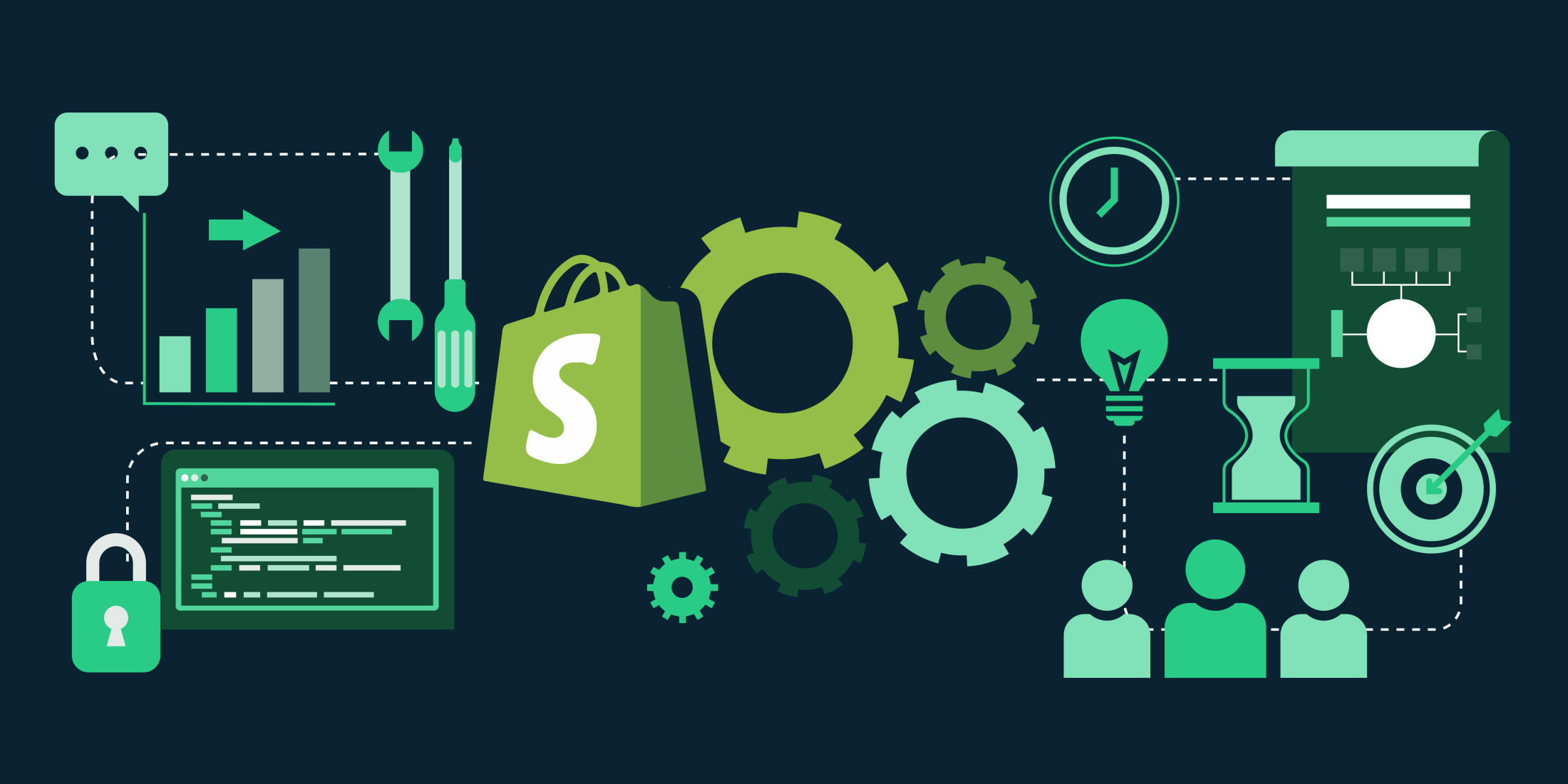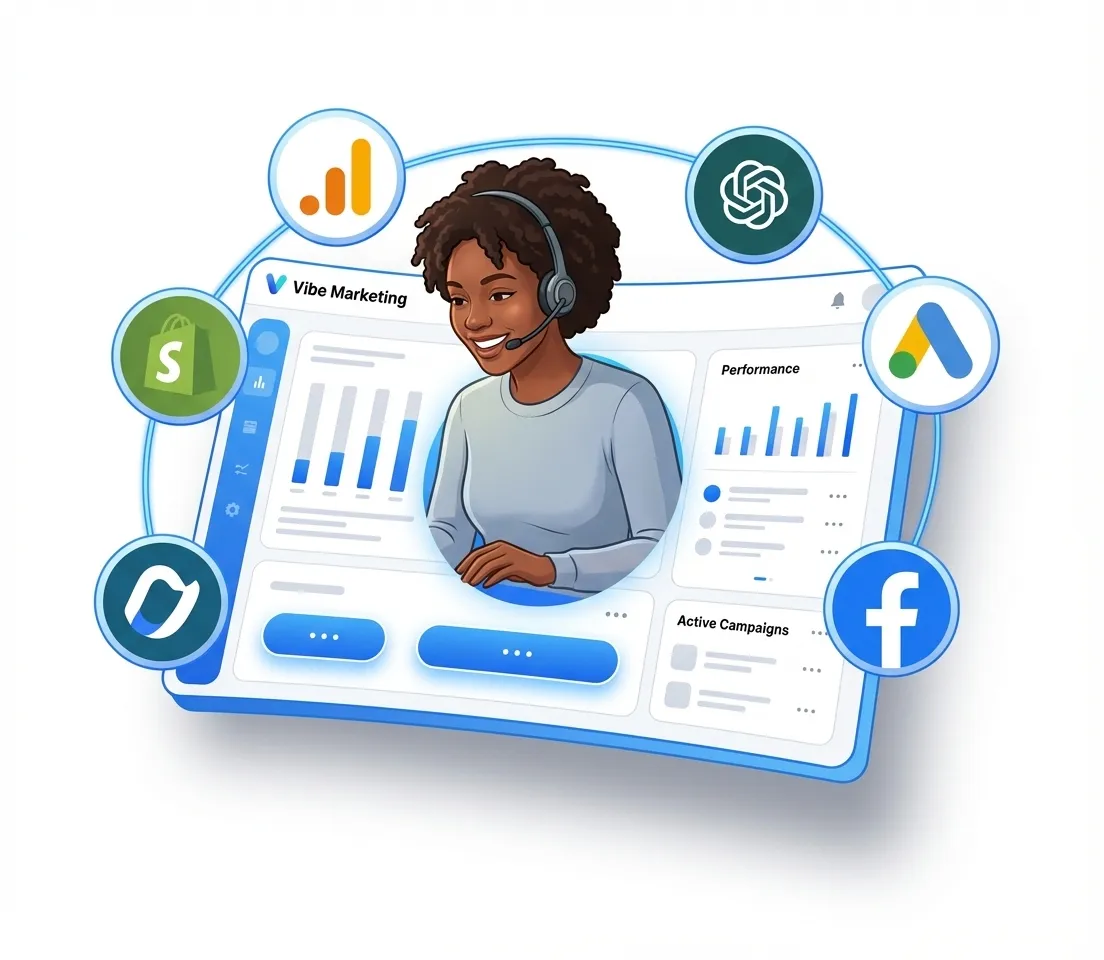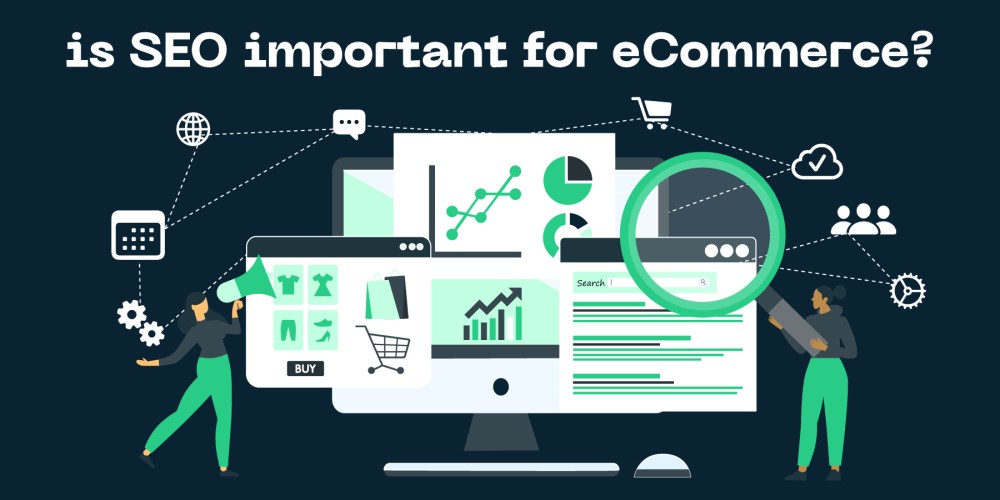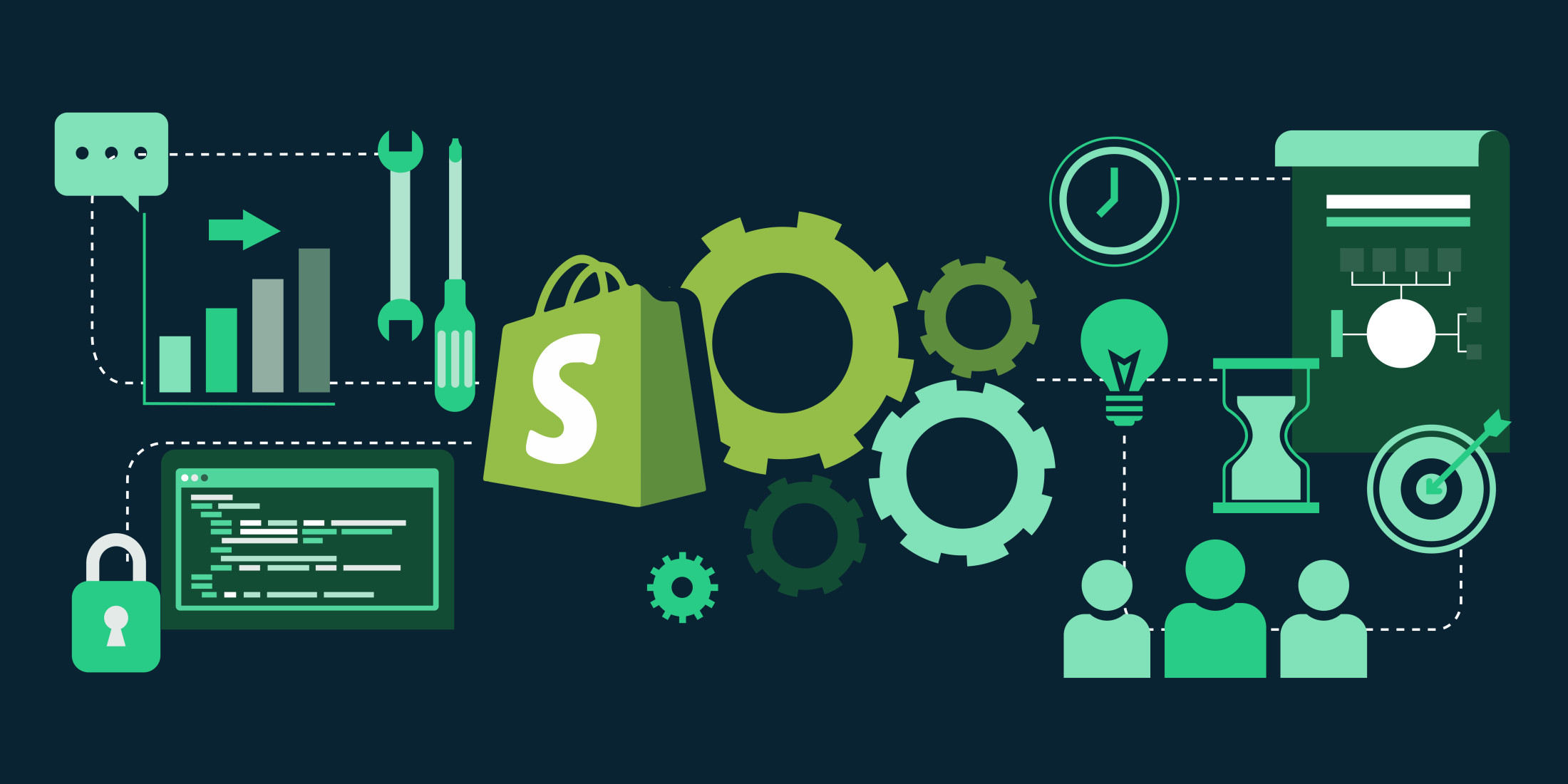How AI Agents Can Improve Your eCommerce Email Campaigns

Key Takeaways
- Learn how AI agents can supercharge your eCommerce email campaigns, making them smarter and more effective.
- Discover the power of AI-driven email marketing strategies to boost your open and click-through rates.
- Personalization and segmentation get a big upgrade with AI, helping you send the right message to the right people.
- Explore how predictive analytics can transform your email campaigns, anticipating customer behavior for better results.
- Find out about AI tools for email optimization, including subject line generation and content automation.
- Understand how AI seamlessly integrates with existing systems, like analytics tools and CMS, for a smooth operation.
- Measure the success and ROI of AI-enhanced email campaigns, focusing on conversion improvements and long-term benefits.
- ConvertMate offers expert solutions to help eCommerce brands optimize their marketing with AI, making them a go-to resource for this transformation.
Introduction to AI in eCommerce
Understanding AI Agents
Understanding AI agents is crucial for eCommerce store owners and marketers who aim to leverage technology to boost their email campaigns. AI agents, or artificial intelligence agents, are sophisticated algorithms designed to perform tasks that typically require human intelligence. In the context of eCommerce, these agents can analyze vast amounts of data to understand customer behavior, predict their needs, and personalize communication. This ability makes AI agents particularly powerful in email marketing, where timing, content personalization, and customer segmentation can significantly affect conversion rates.
The integration of AI agents in email campaigns allows for a level of personalization that was previously unattainable. By analyzing user data like browsing history, purchase patterns, and engagement metrics, AI agents can craft emails that resonate on a personal level with the recipient. This kind of tailored messaging not only increases the likelihood of engagement but also builds a stronger connection between the brand and the customer. Moreover, AI agents can automate the testing of different email variations, optimizing performance by learning which elements drive the best results. This means that marketers can continuously refine their strategies based on real-time data, leading to more effective campaigns and higher conversion rates.
Furthermore, AI agents can assist in refining the timing of emails, ensuring that messages reach customers when they are most likely to engage. This is achieved through predictive analytics, where AI analyzes past engagement data to determine optimal sending times. For eCommerce businesses, this could mean sending a discount code when a customer is most likely to be considering a purchase, thereby increasing the chances of conversion. By understanding and implementing AI agents in email marketing, eCommerce store owners and marketers can not only enhance their campaigns but also foster more meaningful customer relationships and drive sales growth.
Benefits of AI in eCommerce
Artificial Intelligence (AI) is revolutionizing the eCommerce landscape by providing powerful tools that can significantly enhance marketing strategies, particularly email campaigns. The integration of AI in eCommerce offers store owners and marketers opportunities to refine their approach through data-driven insights, thus improving customer engagement and conversion rates. By automating and personalizing email content, AI helps businesses deliver relevant messages at the right time, which is crucial for capturing customer interest and encouraging purchases.
One of the greatest benefits of AI in eCommerce is its ability to analyze vast amounts of customer data to discern patterns and preferences. This capability allows AI to create highly personalized email content that resonates with individual customers. For instance, AI can tailor product recommendations based on a customer's browsing history and past purchases, ensuring that emails are not only relevant but also timely. This level of personalization can lead to higher open rates, click-through rates, and ultimately, increased conversion rates.
Moreover, AI-powered tools can optimize the timing and frequency of email campaigns. By analyzing customer behavior data, AI can determine the best times to send emails to maximize engagement. This ensures that emails are delivered when customers are most likely to interact with them, reducing the risk of messages being ignored or marked as spam. In addition, AI can continuously learn from customer interactions to improve future campaigns, making it an essential asset for any eCommerce business looking to enhance its email marketing strategies.
Enhancing Email Campaigns with AI
Personalization and Segmentation
In the rapidly evolving landscape of eCommerce, personalization and segmentation have emerged as pivotal strategies for enhancing email campaigns. With the integration of AI, these strategies can be significantly amplified to drive better results. Personalization involves tailoring email content to the individual preferences and behaviors of each recipient, making communications more relevant and engaging. Meanwhile, segmentation is about dividing your email list into distinct groups based on specific criteria such as purchase history, browsing behavior, and demographics. AI agents can streamline both of these processes by analyzing vast amounts of data to uncover patterns and insights that humans might miss, enabling marketers to create highly targeted and personalized campaigns.
By leveraging AI, eCommerce businesses can go beyond basic personalization, such as inserting a customer's first name in an email. AI can help in crafting content that resonates with each segment of your audience by predicting what products they are most likely to be interested in based on their previous interactions with your store. Moreover, AI can assist in determining the optimal timing for sending emails, increasing the likelihood that the recipient will open and engage with the email. This level of personalization can result in higher open rates, click-through rates, and ultimately, conversion rates.
Segmentation, powered by AI, allows for even more precise targeting. With AI, marketers can automatically segment their email lists based on complex behavioral patterns and preferences, rather than relying solely on static factors like age or location. For example, AI can identify micro-segments within your audience that share specific interests or purchasing behaviors, enabling you to send highly relevant content to these groups. This targeted approach not only enhances the customer experience by providing them with content that is aligned with their interests but also improves the efficiency of your marketing efforts, as resources are directed toward the most promising segments. Ultimately, AI-driven personalization and segmentation can transform your email campaigns into powerful tools for customer engagement and conversion.
Predictive Analytics in Email
In the ever-evolving landscape of eCommerce, staying ahead of competitors often means leveraging the latest technologies to create more personalized and effective marketing strategies. Predictive analytics, powered by AI, is rapidly becoming a game-changer for email campaigns. It allows marketers to sift through vast amounts of data to forecast future customer behaviors and preferences. By using predictive models, AI agents can help identify which customers are most likely to engage with specific email content, thereby optimizing the timing and frequency of email sends. This means that marketers can shift from blanket email strategies to highly targeted campaigns, increasing the likelihood of conversions.
With AI-driven predictive analytics, eCommerce store owners can enhance customer segmentation in ways that were once thought impossible. For example, AI can analyze past purchase behaviors, browsing history, and even response patterns to determine the likelihood of a customer purchasing a particular product. This offers invaluable insights into not only who to target but also what kind of content and offers will resonate best with different customer segments. In turn, this level of personalization can significantly boost open rates, click-through rates, and, ultimately, conversion rates, making email marketing a more powerful tool in any marketer’s arsenal.
Furthermore, AI agents can help in optimizing email subject lines and content by predicting which types of language or offers are likely to elicit a positive response from the audience. By continuously learning from new data, these AI systems refine their models, thereby constantly enhancing the effectiveness of email campaigns. This dynamic adaptation is crucial in today's fast-paced digital world, where consumer preferences can change rapidly. For eCommerce marketers looking to improve their email campaigns, integrating AI-driven predictive analytics offers a robust solution that not only enhances engagement but also drives substantial increases in ROI.
AI Tools for Email Optimization
AI-driven Subject Line Generation
In the realm of eCommerce, where email campaigns are pivotal to driving sales and engaging customers, AI-driven subject line generation has emerged as a powerful tool for optimization. As an eCommerce store owner or marketer, you understand that the subject line is the first impression a recipient has of your email, and it plays a crucial role in determining whether your email will be opened or ignored. AI tools leverage vast datasets and machine learning algorithms to craft subject lines that not only attract attention but also resonate with the target audience by analyzing language patterns and consumer behavior. This personalized approach can significantly enhance open rates, leading to improved conversion rates and overall campaign success.
One of the standout advantages of AI-generated subject lines is their ability to continuously learn and adapt. By processing data from previous campaigns, these AI tools can refine their strategies, identifying what works and what doesn’t in real time. This means that rather than relying on guesswork or time-consuming A/B testing, eCommerce marketers can utilize AI insights to generate subject lines that are already optimized for success. Moreover, these AI solutions often provide recommendations based on consumer sentiment, seasonal trends, and competitive analysis, ensuring that your email stands out in a crowded inbox.
Furthermore, the efficiency and scalability offered by AI-driven subject line generation cannot be overstated. For businesses that manage large-scale email campaigns, manually crafting personalized subject lines for each segment can be resource-intensive and prone to human error. AI tools streamline this process, allowing marketers to focus on other strategic areas of their campaigns. In a highly competitive eCommerce landscape, leveraging AI to optimize subject lines is not just a smart choice; it’s a strategic necessity that can lead to higher engagement, better customer relationships, and ultimately, increased sales.
Content Automation with AI
In the competitive world of eCommerce, optimizing email campaigns is crucial for maximizing conversion rates and customer engagement. AI tools are revolutionizing this process by bringing personalization, precise targeting, and data-driven strategies directly to your inbox. By automating content creation and A/B testing, AI-powered systems can dynamically adjust subject lines, messaging, and send times based on recipient behavior and preferences. This level of customization is highly effective, as it ensures that each email is not just another message in the inbox, but a personalized experience that resonates with its recipient. For eCommerce store owners and marketers, leveraging AI in email optimization means reducing the guesswork and relying on insights that increase open rates, click-throughs, and ultimately, sales.
AI tools for email optimization employ sophisticated algorithms to analyze customer demographics, past purchase history, and online behavior. This analysis allows marketers to craft emails that speak directly to the needs and interests of individual customers, thereby increasing relevance. Furthermore, AI can significantly reduce the time spent on email campaigns through automation. Routine tasks such as segmentation and scheduling can be handled by these intelligent systems, freeing up valuable time for marketers to focus on strategy and creative direction. The ability to predict customer behavior and tailor messages accordingly is invaluable, as it not only ensures higher engagement rates but also fosters customer loyalty and retention.
One of the most significant advantages of AI tools is their capacity for continuous learning and improvement. As these systems process data from each campaign, they become more adept at predicting which strategies will yield the best results. This ongoing optimization process can significantly improve conversion rates over time, which is vital for eCommerce businesses looking to scale their operations. By integrating AI into their email marketing strategies, eCommerce store owners and marketers can not only enhance the effectiveness of their campaigns but also gain a competitive edge in a saturated market. The insights provided by AI can lead to more informed decision-making, ultimately resulting in a stronger ROI and a more robust online presence.
Integrating AI with Existing Systems
Compatibility with Analytics Tools
Integrating AI with existing systems in eCommerce is not just about enhancing operational efficiencies; it's also about ensuring seamless compatibility with your current analytics tools. Most eCommerce businesses already utilize a variety of analytics platforms to capture and analyze data such as customer behaviors, sales performance, and marketing ROI. The introduction of AI agents can significantly amplify these insights by processing vast amounts of data more effectively and deriving actionable insights that a human might overlook. Therefore, ensuring that AI solutions are compatible with your existing analytics tools is crucial for maximizing the potential of your email campaigns.
Compatibility with analytics tools means that AI agents can work in concert with your existing data collection methods. This ensures that the insights generated are not only more precise but also integrated with historical data for more comprehensive analysis. For instance, AI can enhance predictive analytics by identifying patterns in customer behavior, which can then be used to craft more personalized email campaigns. Such campaigns can increase conversion rates by targeting customers with content and offers that are more relevant to their browsing and purchasing history. For an eCommerce business owner, this means a more refined and targeted approach to email marketing that could lead to higher engagement rates and, ultimately, sales.
Moreover, ensuring compatibility often involves choosing AI agents that can easily integrate with popular analytics platforms such as Google Analytics, Adobe Analytics, or proprietary systems. This seamless integration allows for real-time data processing and immediate application of insights, leading to more dynamic and responsive email marketing strategies. As a marketer or store owner, understanding the synergies between AI agents and your analytics tools can provide a competitive edge. By leveraging AI's capability to work hand-in-hand with existing systems, you can not only optimize your email campaigns but also ensure that every customer interaction is informed by data-rich insights, leading to improved outcomes and a better understanding of your audience.
Seamless Connection with CMS
Integrating AI with existing Content Management Systems (CMS) offers a seamless connection that can revolutionize the way you run your eCommerce email campaigns. For store owners and marketers striving to boost conversion rates, AI agents can be the game-changer. By plugging AI into your CMS, you can automate and optimize your email strategies with unprecedented precision. This integration allows AI to analyze customer data, purchase history, and browsing behavior to tailor personalized email content that resonates with individual customers. The result is more engaging and effective communication that can lead to higher open rates, click-through rates, and ultimately, conversions.
One of the most significant advantages of seamlessly connecting AI with your CMS is the ability to deliver real-time insights and actionable data. AI agents can continuously learn from customer interactions and feedback, enabling your email campaigns to adapt swiftly to changing customer preferences and market trends. This dynamic adaptability is invaluable in maintaining customer interest and driving consistent engagement. Furthermore, the integration can streamline your operations by automating routine tasks such as data sorting, segmentation, and even A/B testing, allowing your marketing team to focus on creative strategies and other high-impact activities.
It is essential for eCommerce businesses to leverage AI in a way that complements and enhances their existing systems. A seamless CMS integration ensures that AI tools do not function in isolation but become a cohesive part of your marketing ecosystem. This holistic approach allows for a unified strategy that can amplify the effectiveness of your email campaigns. As a result, you are not just optimizing individual aspects of your marketing efforts, but enhancing the entire customer journey, which is crucial for building long-term customer relationships and achieving sustainable growth. In conclusion, the synergy between AI and your CMS has the potential to significantly elevate your email marketing performance and, by extension, your overall business success.
Measuring Success and ROI
Tracking Conversion Improvements
One of the most significant benefits of incorporating AI agents into your eCommerce email campaigns is the ability to track conversion improvements with precision. As an eCommerce store owner or marketer, your ultimate goal is to boost your conversion rates, turning potential leads into loyal customers. AI agents facilitate this by providing insightful data analysis and predictions that can be used to measure success and ROI effectively. By leveraging machine learning algorithms, AI agents can analyze customer behavior patterns and adapt email content in real time, ensuring that each message is tailored to resonate with individual recipients. This personalized approach not only increases the likelihood of a purchase but also enhances the overall customer experience, leading to long-term loyalty and higher lifetime value.
In terms of measuring success and return on investment (ROI), AI agents offer advanced analytics capabilities that surpass traditional methods. By tracking key performance indicators (KPIs) such as open rates, click-through rates, and conversion rates, these intelligent systems provide a comprehensive view of your email campaign’s effectiveness. Moreover, they can identify which specific elements of your emails are driving conversions, whether it’s the subject line, call-to-action, or product recommendations. This granular level of analysis enables you to make data-driven decisions and continuously refine your email marketing strategies to maximize conversion rates. With AI agents, you can also conduct A/B testing more efficiently, determining the most effective email variations faster and implementing changes on the fly.
Ultimately, the integration of AI agents into your eCommerce email campaigns can lead to substantial improvements in conversion rates by fostering a more personalized and engaging customer interaction. As these agents learn from historical data and ongoing interactions, they become increasingly adept at predicting customer preferences and behaviors, allowing for ever more precise targeting. This continuous optimization process not only boosts immediate sales but also builds a foundation for sustained growth by nurturing long-term customer relationships. Hence, tracking conversion improvements with AI agents not only measures success but actively contributes to it, offering a powerful tool for any eCommerce professional looking to enhance their marketing efforts and drive tangible results.
Evaluating Long-term Benefits
Evaluating the long-term benefits of AI agents in your eCommerce email campaigns is crucial when aiming to measure success and ROI effectively. While immediate results such as open rates and click-throughs often steal the spotlight, the true value of AI lies in its sustained impact on customer engagement and conversion rates over time. AI agents utilize machine learning algorithms to continuously optimize email content, timing, and targeting strategies. This leads to more personalized customer interactions, fostering loyalty and increasing customer lifetime value. As a store owner or marketer, it is essential to look beyond short-term metrics and focus on these enduring benefits to truly gauge the AI’s contribution to your campaigns.
One of the key long-term benefits of deploying AI agents in your email marketing strategy is the enhanced ability to segment and target your audience more precisely. These agents analyze vast amounts of data to identify patterns and trends that may not be immediately evident through manual analysis. By leveraging insights drawn from customer behavior, AI agents can assist in crafting highly personalized email campaigns that resonate with different segments of your audience. This personalized approach not only improves engagement but also enhances the overall customer experience, which is a significant driver of long-term success and ROI in the competitive eCommerce landscape.
Moreover, AI agents facilitate continuous learning and adaptability in your marketing strategies, ensuring that your email campaigns remain relevant in a rapidly changing marketplace. By constantly analyzing campaign performance and adjusting tactics based on real-time data, AI agents enable you to stay ahead of trends and consumer preferences. This adaptability is vital for sustaining high conversion rates and achieving long-term growth. As you measure the success and ROI of your AI-driven email campaigns, consider the cumulative benefits of increased efficiency, improved customer retention, and enhanced brand loyalty. These factors collectively contribute to a robust, sustainable eCommerce strategy.
FAQS
How do AI agents enhance the personalization of eCommerce email campaigns?
AI agents can analyze customer data and behavior to create highly personalized email content. This includes custom product recommendations and tailored subject lines, leading to increased engagement and higher conversion rates.
Can AI agents help in segmenting my email list more effectively?
Yes, AI agents use machine learning algorithms to analyze data and segment your email list based on customer behavior, preferences, and purchasing history. This ensures that your marketing messages reach the most relevant audience.
How do AI agents optimize email send times for better open rates?
AI agents can analyze past engagement data to determine the optimal send times for each subscriber. This increases the likelihood of emails being opened and read, improving overall campaign performance.
What role does AI play in improving email subject lines?
AI agents can generate and test various subject lines using natural language processing and predictive analytics to find the most effective ones. This results in higher open rates and improved engagement.
How can ConvertMate specifically help in improving my email campaigns?
ConvertMate integrates with your existing analytics tools and platforms to utilize AI agents that enhance your email campaigns. This includes optimizing content, improving personalization, and increasing your conversion rates.
Are AI agents capable of A/B testing email campaigns?
Yes, AI agents can automate the A/B testing process, rapidly analyzing which versions of your emails perform best. This helps you refine content and strategies quickly and efficiently.
Can AI agents help reduce email unsubscribe rates?
By ensuring that emails are highly relevant and personalized through AI-driven insights and segmentation, unsubscribe rates can be significantly reduced. Customers are more likely to stay subscribed if they find value in the content they receive.



